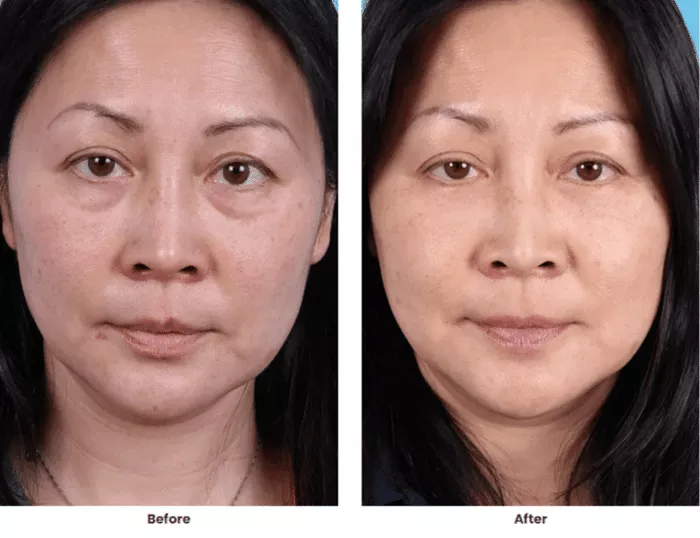Eyelid surgery, also known as blepharoplasty, is a popular cosmetic procedure aimed at rejuvenating the appearance of the eyes. It involves the removal of excess skin, muscle, and fat from the eyelids to correct sagging, puffiness, and other signs of aging. While eyelid surgery can deliver remarkable results, it is important to remember that it is still a surgical procedure, and proper post-operative care is crucial for optimal healing and recovery. In order to ensure the best outcome and avoid complications, there are certain activities and habits that should be avoided during the healing process. Let’s explore what you should not do after eyelid surgery.
1. Strenuous Physical Activities
Engaging in strenuous physical activities is one of the top activities to avoid after eyelid surgery. This includes activities such as heavy lifting, vigorous exercise, and activities that increase blood pressure and heart rate. Strenuous activities can lead to increased swelling, bleeding, and prolonged healing time. It is important to give your body enough time to rest and recover before resuming any intense physical activities. Your surgeon will provide specific guidelines on when it is safe to gradually resume exercise and other strenuous activities.
2. Rubbing or Touching Your Eyes
During the healing process, it is essential to avoid rubbing or touching your eyes, even if they feel itchy or irritated. Rubbing or touching the surgical site can disrupt the delicate healing tissues and increase the risk of infection. It is crucial to resist the temptation to scratch or rub your eyes and follow the post-operative instructions provided by your surgeon, which may include the use of eye drops or ointments to alleviate any discomfort.
3. Wearing Contact Lenses
After eyelid surgery, wearing contact lenses should be avoided for a certain period of time as recommended by your surgeon. Contact lenses can irritate the eyes and interfere with the healing process. It is best to switch to wearing glasses until your surgeon gives you the green light to resume wearing contact lenses.
4. Exposing Your Eyes to Sunlight
Protecting your eyes from direct sunlight is vital during the healing phase after eyelid surgery. UV rays can cause inflammation, scarring, and pigmentation changes, which may affect the final outcome of the procedure. It is essential to wear sunglasses with UV protection whenever you are outdoors, even on cloudy days. Additionally, avoid tanning beds and sunbathing until your surgeon advises it is safe to do so.
5. Applying Makeup and Skincare Products
In the initial stages of healing, it is important to avoid applying makeup and skincare products around the eyes. The incision sites need time to heal properly, and the use of cosmetics can introduce bacteria or irritate the delicate tissues. Your surgeon will provide instructions on when it is safe to resume using makeup and skincare products.
6. Smoking and Alcohol Consumption
Smoking and alcohol consumption should be avoided both before and after eyelid surgery. Smoking delays the healing process by constricting blood vessels and decreasing blood flow to the surgical site. It also increases the risk of complications such as infection. Alcohol, on the other hand, can thin the blood and increase the risk of bleeding. It is essential to follow your surgeon’s recommendations and abstain from smoking and drinking alcohol for the recommended period of time.
7. Ignoring Follow-up Appointments
Follow-up appointments with your surgeon are crucial for monitoring your healing progress and addressing any concerns or complications that may arise. It is important not to skip these appointments and to communicate openly with your surgeon throughout the recovery period. Attending follow-up appointments allows your surgeon to assess the outcome of the surgery and provide any necessary guidance for a smooth recovery.
8. Ignoring Signs of Complications
While complications after eyelid surgery are rare, it is essential to be aware of the signs that may indicate a problem. If you experience severe pain, excessive swelling, bleeding, vision changes, or any other unusual symptoms, contact your surgeon immediately. Prompt medical attention can help prevent potential complications and ensure the best possible outcome.
9. Rushing the Healing Process
Patience is key when it comes to the healing process after eyelid surgery. It is important to allow your body enough time to heal naturally and avoid rushing the process. Each individual’s healing timeline may vary, and it is crucial to follow your surgeon’s instructions regarding post-operative care, rest, and recovery. By giving your body the time it needs, you can maximize the results of your eyelid surgery and minimize the risk of complications.
In conclusion, eyelid surgery can yield remarkable results in enhancing the appearance of the eyes. However, it is important to understand and adhere to the necessary precautions and guidelines for a successful recovery. Avoiding strenuous physical activities, refraining from rubbing or touching your eyes, protecting your eyes from sunlight, and following your surgeon’s recommendations regarding makeup, skincare products, smoking, and alcohol can contribute to a smooth healing process. Additionally, attending follow-up appointments and being vigilant about any signs of complications are crucial for a safe and effective recovery. By prioritizing post-operative care, you can enjoy the long-lasting benefits of eyelid surgery while minimizing any potential risks.


